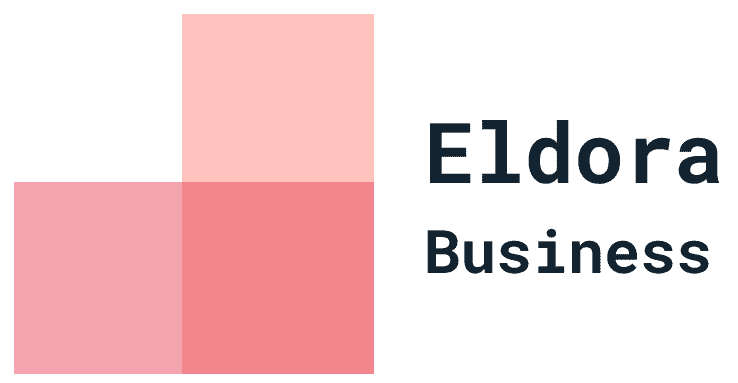Mortgage insurance, also referred to as private mortgage insurance (PMI), safeguards lenders in case borrowers default on their loans. It also enables borrowers to purchase homes with a smaller down payment and lower upfront expenses.Mortgage insurance comes in two main forms: PMI and MPI. Each operates slightly differently, so learn more about these policies to ensure you get the best mortgage for your requirements.
Private Mortgage Insurance (PMI)
PMI (Primary Mortgage Insurance) is a type of mortgage insurance that may be necessary on conventional loans if your down payment is less than 20% or if you borrow more than 80% of the home’s value. While PMI may help you purchase your home faster by decreasing your down payment amount, it also raises monthly mortgage payments.
PMI premiums vary between lenders, typically costing between 0.5% and 1% of your loan value annually. You’ll see this amount included in both your initial loan estimate and closing disclosure documents. You have two payment options for paying it: upfront at closing or as part of monthly mortgage payments.
If you have a low down payment, high credit score, or an excellent credit history, you might be eligible to have your PMI coverage removed once certain conditions are fulfilled. You can also request cancellation once 20% equity has been built up in your home or after the mortgage term has been completed.
Another way to reduce or eliminate PMI is by paying the premium in one lump sum upfront. This may be a viable option if you have extra money in your budget early in the year and want to minimize monthly housing expenses.
When making a decision regarding PMI costs, be sure to shop around and compare lenders. The price of the insurance will depend on factors like loan amount, down payment amount, credit score, and more.
Calculating your annual PMI costs with a calculator is easy. It takes into account the portion of your loan that’s covered by insurance, as well as factors like credit score and income.
Your lender may allow you to pay PMI as either an upfront premium or multiple premiums each month. Alternatively, you could opt for a hybrid payment plan, where some of your premiums are made upfront and other payments come as part of your regular mortgage payment.
PMI may seem like a hassle, but it can help you purchase a home sooner and give you more purchasing power. Furthermore, it protects your credit so you qualify for better financing options with lower interest rates.
Mortgage Protection Insurance (MPI)
Mortgage protection insurance (MPI) is a life or disability policy that pays your home loan balance in the event of death, disability or loss of income. While these policies offer various advantages to homeowners, those who don’t want to risk foreclosure or having to sell their homes in an emergency can find comfort knowing their loans are secure.
In addition to relieving a borrower’s mortgage debt, MPI can also cover medical expenses and other costs that might arise after the death of a homeowner. Some policies even pay off the mortgage in full if they pass away before their home is sold.
Mortgage insurance comes in many forms, but most providers require you to obtain a policy within 24 months of closing on your mortgage. The time frame, premium amount and policy limitations vary from company to company.
Before you decide to purchase MPI, be sure to compare it with other options that offer similar coverage at lower costs. Term life insurance may be a better choice for healthy borrowers and may offer more flexibility than mortgage protection insurance does.
Mortgage protection insurance can be obtained from a range of providers, including mortgage companies, banks and independent insurers. You have the option to buy through an independent agent or broker or directly from your lender.
Mortgage protection insurance premiums can range anywhere from $100 to several hundred dollars a month, which could be an expensive burden for some homeowners, particularly those facing financial difficulty or with complex medical histories.
MPI is a popular option, but it does not cover every situation. It does not pay off other debts associated with the homeowner such as home equity loans and HELOCs, nor does it cover standard expenses like utility bills or home repairs.
It’s essential to be aware that most mortgage lenders require you to purchase private mortgage insurance (PMI) if your down payment on your loan is less than 20%. This surcharge could amount to thousands of dollars annually depending on your credit score and loan amount, so make sure you understand it fully.
Foreclosure Insurance
Foreclosure is the legal process that enables lenders to recoup the amount owed on defaulted loans by taking ownership and selling the mortgaged property. Banks usually work with borrowers in an effort to prevent foreclosure, but this may not always be successful. If a borrower cannot make their scheduled monthly payments, the lender has the right to initiate foreclosure proceedings.
The foreclosure process could potentially mean the loss of your home and possessions, so it is essential to maintain insurance coverage for both.
If you are going through foreclosure, it is essential to maintain your homeowner’s insurance policy. This way, if any damages occur to your property during the process, the insurance company will reimburse you for repair or replacement expenses.
However, before you decide to stop paying your mortgage, it is essential to weigh the potential repercussions. For instance, if your home is destroyed in a fire and your homeowner’s insurance does not cover it, the insurer is likely going to cancel your policy, leaving you without protection for your possessions.
To avoid such a predicament, it is essential to purchase mortgage insurance with a loss payable clause that grants the lender rights to any proceeds of casualty insurance settlements when secured by real estate. This can be accomplished by requiring the borrower to pledge in their mortgage that they will purchase an insurance policy with such a clause in favor of the lender.
A “standard” or New York loss payable clause is more beneficial to lenders because it safeguards their interests by guaranteeing that insurance proceeds will be paid out as they arise, rather than being derived from the borrower’s interest. While this clause eliminates many defenses the insurer could raise against you such as non-payment of premiums and lack of proof of insurance, it does not give you full protection in foreclosure proceedings.
L&A’s Force Placed/Foreclosed Property policy gives banks, other lenders and REO investors the ability to cover their Foreclosed/REO properties under one comprehensive master policy with no individual underwriting of each property. This reduces policy issuance and minimizes costs while providing extensive coverages within one policy.
Mortgage Payment Protection
Mortgage insurance is a policy that can assist in paying your monthly mortgage payments if you become sick, injured or lose your job. It may also cover the home mortgage if you must move due to circumstances beyond your control.
Life and disability insurance are two common ways to cover your mortgage payments, but they’re not the only options available. For instance, creating an emergency fund of 3-6 months of salary can ensure you have enough money during unemployment or a disability to keep up with payments on the home.
Mortgage insurance is an integral component of any homeowner’s financial plan and should be taken into account when shopping around for coverage. It may be wise to compare the policies and benefits provided by several companies before making your decision.
Some mortgage protection insurance plans provide a declining payout policy, where your benefits decrease as your loan balance decreases. This may be an advantageous option for homeowners who want to keep premiums low but don’t have a large mortgage.
Another option is a level term policy, which pays out the same amount regardless of the mortgage balance. This may be suitable for those without large mortgages who want to maintain their savings without sacrificing them.
However, these policies can be costly. A return of premium policy may be more suitable in this instance as it will reimburse your premiums if you outlive the mortgage insurance coverage.
Mortgage protection insurance may also extend coverage to borrowers with more than one co-borrower on a mortgage, providing added assurance for borrowers and their families, especially when the loan amount is large.
Many mortgage protection policies also feature living benefit riders, which can be a helpful way to safeguard borrowers who have chronic or critical illnesses or severe injuries that prevent them from working full time. These riders are especially beneficial for those at high risk of suffering an injury or illness that prevents them from working at all.
Similar to finding any other type of insurance, the best way to find the ideal mortgage protection policy is by doing some research and comparing different options. That way, you can decide which policy best meets your individual needs and budget.

